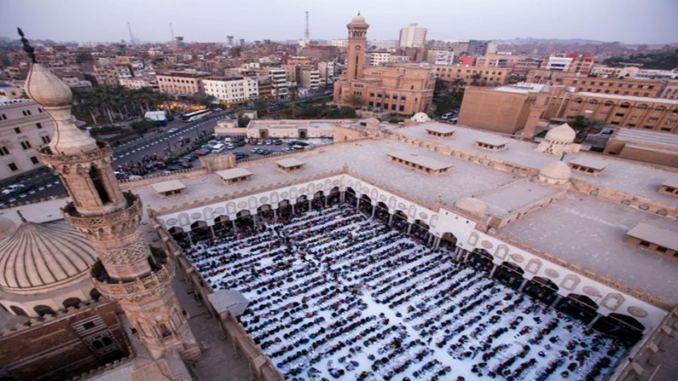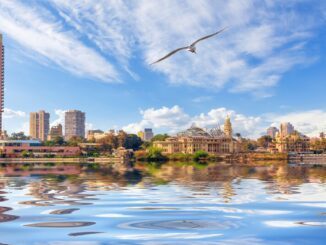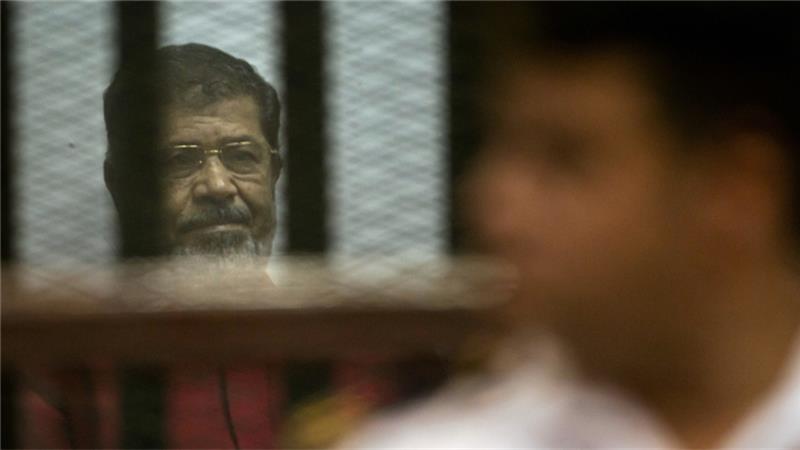
Human Rights Watch says Egypt is violating the right to worship by imposing prayer restrictions on Muslims in the holy month of Ramadan
“Egypt’s Ministry of Religious Endowments should end all arbitrary restrictions on religious gatherings, prayers, and practices during the final days of Ramadan and the upcoming Eid celebrations,” Human Rights Watch said today.
On April 20, 2022, the minister announced a ban on prayers and practices unique to the last days of Ramadan, as well as restrictions on prayers and celebrations during Eid al-Fitr, the religious holiday celebrating the end of Ramadan.
Dr. Mohamed Mokhtar Gomaa, Egypt’s minister of religious endowments, used social media to issue his complete prohibition on the I’tikaf practice and Tahajud prayers, Islamic rituals commonly performed during the last evenings of Ramadan.
I’tikaf involves spending the last 10 nights of Ramadan in a mosque. The Tahajud prayer is an evening prayer performed in the middle of the night, often during these overnight visits. Many Muslims consider the I’tikaf prayers particularly blessed during Ramadan.
“Egyptian officials have imposed unacceptable restrictions on worshipers as to where and when they are allowed to pray this Ramadan and Eid,” said Joe Stork, deputy Middle East and North Africa director at Human Rights Watch. “Limits on religious practices should only be allowed if they are strictly necessary for public health and safety.”
Minister Gomaa said the restrictions are due to concerns over the spread of Covid-19. At the beginning of Ramadan, the government did not specify limits to the number of people allowed to attend large gatherings or celebrations, indoors or outdoors.
Egypt’s cabinet announced on March 27 that events in mosques, as well as weddings and celebrations in “closed hotel halls,” would be allowed during Ramadan “provided that precautionary measures are adhered to.”
On April 14, Gomaa announced that Eid al-Fitr sermons should not be longer than 10 minutes. These sermons, an important ritual marking the end of Ramadan, can typically last hours.
On April 19, Hisham Abdelaziz, a senior official at the Ministry of Religious Endowments, banned Eid prayers outside the mosque, including in the streets and public squares.
He also said that the Eid al-Fitr prayer should only take place in ministry-selected mosques, rather than in all mosques.
On April 25, after a backlash on social media, Gomaa reversed the decision to ban Tahajud prayers. Restrictions on I’tikaf, the Eid sermon, and Eid celebrations remain in place.
After the April 19 announcement, representatives from the Ministry of Religious Endowments ordered that mosques be closed during the Tahajud prayer.
Photos and videos viewed by Human Rights Watch showed patrols from the Ministry of Religious Endowments guarding the doors of mosques during the designated prayer time, preventing worshipers from praying.
In one video, a patrol enters the Al-Maraghi Mosque in Helwan during the evening prayer on April 24, interrupts the ongoing prayers, and orders worshipers to leave. On April 25, the Interior Ministry denied that the incident took place.
Sheikh Salama Abdel Razek, the undersecretary of religious endowments in Alexandria, warned that people who violate the ministry’s prayer bans would be investigated.
On April 21, security officials detained a journalist, Safaa al-Korebgy, a former employee at the Radio and Television magazine, after she posted a video to social media complaining about the time limits imposed on the Eid al-Fitr sermon and calling for the sermon to last seven hours.
On April 24, officials took her before the State Security Prosecution, where prosecutors accused her of spreading false news and joining an outlawed group.
Under article 18 of the International Covenant on Civil and Political Rights, freedom of religion includes the right to practice one’s faith collectively and in public.
The African Charter on Human and Peoples’ Rights, to which Egypt is a state party, guarantees the free practice of religion. Article 64 of Egypt’s 2014 Constitution recognizes the right to freely practice religious rituals.
On March 12, the Ministry of Public Health stated that Covid-19 statistics would be released on a weekly rather than daily basis due to the decline in infection rates and the end of the fifth wave of the pandemic.
In the context of public health emergencies, human rights law recognizes that restrictions on some rights can be justified when they have a legal basis, are strictly necessary based on scientific evidence, and proportionate to achieve the objective.
In February, the Religious Committee of the House of Representatives approved amendments to Law 51 of 2014, which regulates speech and religious lessons in mosques, that prohibit “talking about religious matters on visual, audio, or electronic media” without an official license from Al-Azhar or the Ministry of Religious Endowments.
The amendments also increased penalties for anyone who engages in public preaching without a permit or license and anyone who expresses an opinion “contrary to the true religion,” with punishments ranging to life imprisonment with hard labor.
“These restrictions on the free exercise of religion appear to be completely arbitrary, yet another display of the Egyptian government’s lack of tolerance for free expression across the board,” Stork said.



